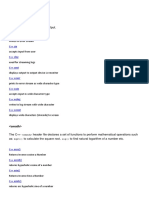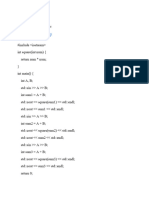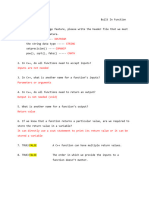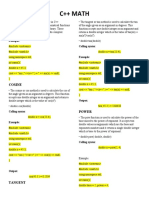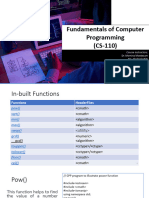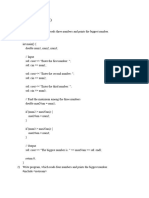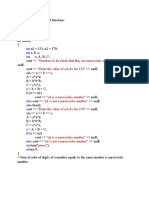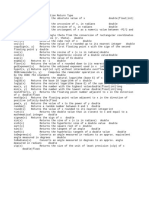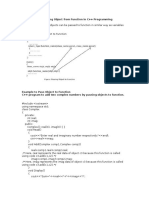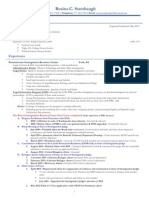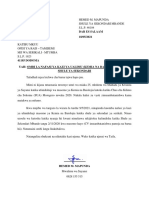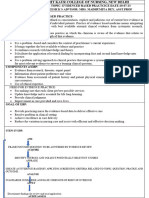0% found this document useful (0 votes)
30 views8 pagesAssignment 1 C++
The document discusses 15 common C++ math functions including absolute value, square root, cube root, power, exponential, natural logarithm, base-10 logarithm, base-2 logarithm, floor, ceiling, round, sine, cosine, tangent, and arcsine. For each function, it provides the syntax, description and an example program to calculate the function.
Uploaded by
m72029967Copyright
© © All Rights Reserved
We take content rights seriously. If you suspect this is your content, claim it here.
Available Formats
Download as DOCX, PDF, TXT or read online on Scribd
0% found this document useful (0 votes)
30 views8 pagesAssignment 1 C++
The document discusses 15 common C++ math functions including absolute value, square root, cube root, power, exponential, natural logarithm, base-10 logarithm, base-2 logarithm, floor, ceiling, round, sine, cosine, tangent, and arcsine. For each function, it provides the syntax, description and an example program to calculate the function.
Uploaded by
m72029967Copyright
© © All Rights Reserved
We take content rights seriously. If you suspect this is your content, claim it here.
Available Formats
Download as DOCX, PDF, TXT or read online on Scribd
/ 8









